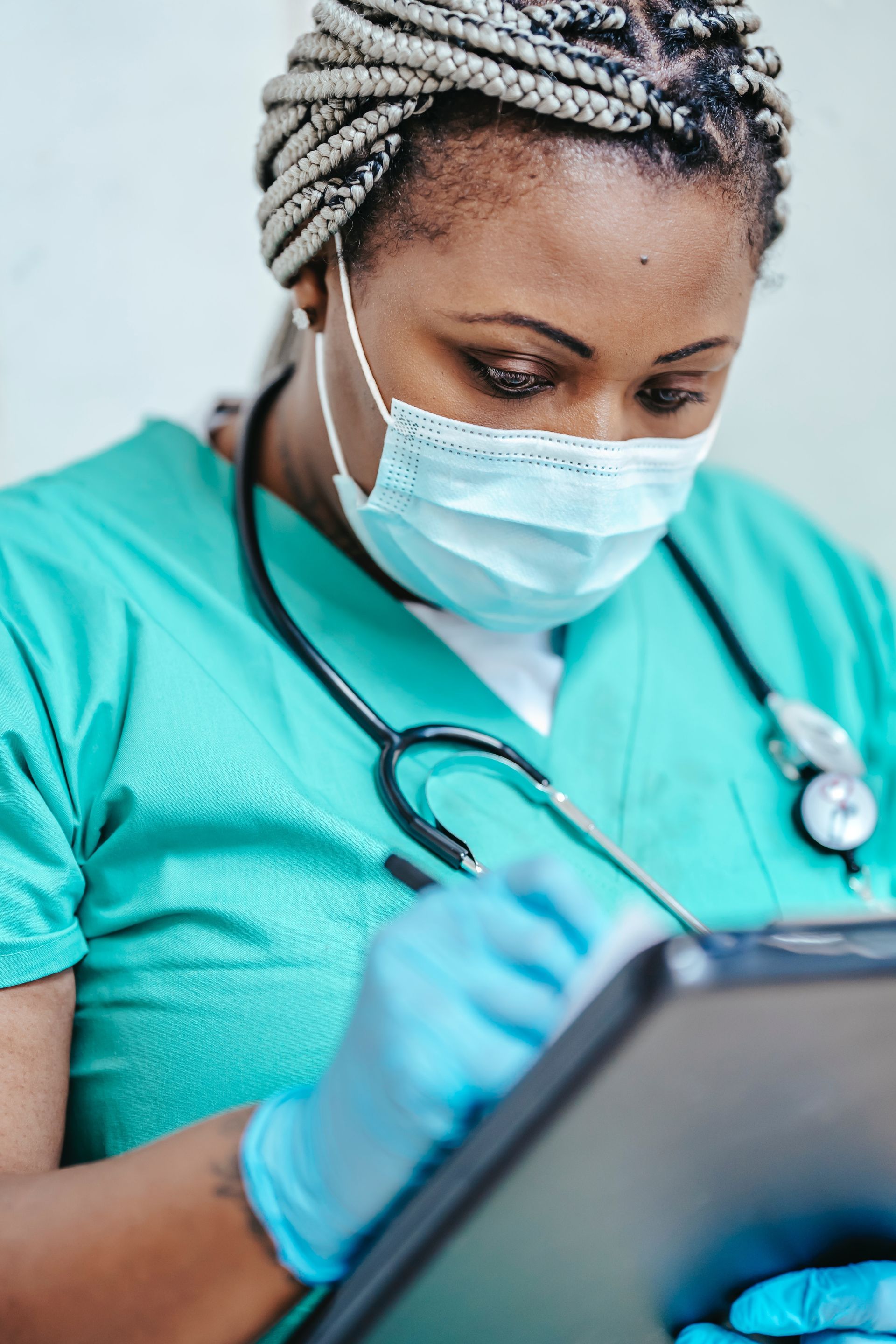How Effective Does a COVID-19 Vaccine Need to Be?
The “effectiveness” of a vaccine can refer to a constellation of factors: What percentage of vaccinated people develop antibodies? How well do antibodies protect against the disease? How long does this protection last?
Over the summer, the Food and Drug Administration (FDA) announced that, to receive a regulatory green light, an experimental COVID-19 vaccine must “prevent disease or decrease its severity in at least 50% of people who are vaccinated.”
The FDA has established a threshold for effectiveness that makes it possible for a vaccine to become available that helps only half of the people receiving it while offering no benefit to the other half. It’s also possible that the vaccine may have varying effects—preventing the disease in some while reducing its severity in others.
What’s Considered Normal Effectiveness?
A vaccine that’s only 50% effective can still make a difference. For example, flu vaccine effectiveness varies widely from year to year—ranging between 20% and 60% over the last decade. And yet, year after year, flu vaccines reduce illness, hospitalizations, and deaths.
No vaccine is 100% effective. But some are better than others. Among the most successful is the measles vaccine. According to the Centers for Disease Control and Prevention (CDC), two doses of the measles vaccine is 97% effective in preventing the disease.
Is 50% Effectiveness Enough?
A near-perfect COVID-19 vaccine may not be necessary at all—depending on how many people took it. For example, experts say that if everyone took a 60% effective vaccine, the pandemic could still be tamed via herd immunity.
Clinical trials assessing the safety and effectiveness of multiple COVID-19 vaccine candidates are currently underway. Through Operation Warp Speed, the government has provided billions of dollars to various biotechnology companies developing vaccines. For example, Moderna has received nearly $2.5 billion to support the development of its vaccine candidate.
While most trials are evaluating whether a vaccine prevents COVID-19, findings may reveal additional information, such as whether a vaccinated individual that still contracts the virus becomes less sick than someone who hasn’t been vaccinated.
Study results may also tell us who benefits most from vaccination by comparing men and women, age groups, and people with and without underlying health conditions. Long-term follow-ups are expected to tell us whether vaccines reduce hospitalizations and deaths.
It’s important to keep in mind that a successful vaccine candidate won’t translate to an immediate end to the pandemic. According to the experts, immunizing millions of people will take time, during which precautions such as face masks, social distancing, and routine hand-washing will remain as crucial as ever.
Leading COVID-19 Efforts
What are you doing to keep your organization at the forefront of COVID-19 research and response? Now is a critical time to invest in new skills and training. Get your teams up to speed with professional training and certification courses from the Center for Professional Innovation and Education (CfPIE).
Are you interested in keeping your organization COVID-ready? Get in touch with a member of the CfPIE team by calling 1-610-648-7550 or emailing [email protected].
Blog Categories
Stay Informed
Have Questions?
You will be able to find answers to most frequently asked questions here
Since 2001 CfPIE has
Check Out Our Life Science Training Courses.
Need help finding the right life sciences training courses? We can help you make the right choice based on your company's needs.
- AMDE, PK/TK & Drug Metabolism in Drug Discovery and Development
- Advanced Topics in Biostatistics for Non-Statisticians
- Analytical Chemistry Principles for Pharmaceutical Scientists
- Analytical Method Validation for Biologics, Biopharmaceuticals and Other Therapeutic Products
- Aseptic Processing in the Manufacture of Biotech and Pharmaceutical Products
- Auditing and Qualifying Suppliers and Vendors
- Best Practices for an Effective Cleaning Validation Program
- Biostatistics for Non-Statisticians
- CMC Regulatory Compliance Strategy for Cell & Gene Therapy Medicines
- CMC Regulatory Compliance Strategy for Recombinant Proteins, Monoclonal Antibodies, & Biosimilars
- Cell and Gene Therapy Product Lifecycle - Introduction Course - Gene Editing, CRISPR/Cas, TALEN Technologies
- Change Control - GMP Requirements and FDA Enforcement
- Cleanroom Fundamentals - Regulation, Science, Design, Practice, Operation & Management
- Clinical Document Management: A Trial-by-Trial Compliance Approach
- Clinical Trial Project Management, Phase 1-4 Best Practices
- Comprehensive Overview of FDA Regulatory Compliance for Drug and Biotech Products
- Computer System Validation
- CRO, CDMO and Non-Clinical Vendor Management Fundamentals
- Development and Validation of Bioanalytical Assays for Biologics: Quantification (PK) and Immunogenicity Assays
- Effective Document Management for Pharma, Biotech & Medical Device
- Effective Internal and External Quality Assurance Auditing for FDA Regulated Industries
- Ethics in Research - Values for Responsible Conduct of Research
- European Regulatory Procedures - EMA & National Requirements
- FDA Inspections - What Regulators Expect and How to Prepare
- GCP Audits - Best Practices for Ensuring Compliance & Detecting Fraud and Misconduct in Clinical Trials
- GMP Training for the QC Laboratory
- Good Clinical Practices (GCP) & Risk Based Monitoring - Understanding and Implementing Current Global Requirements
- Good Laboratory Practice (GLP) for Nonclinical Laboratory Studies
- Good Manufacturing Practices Training | GMP Course
- Human Error Prevention (HEP) - Risk Factors and Strategies
- Implementing and FDA Compliant Stability Program
- Integration of Risk Management Principles and Activities into the Pharmaceutical Quality System
- Intro to Medical Device Submission - 510(s)s, PMAs & Exemptions
- Introduction to Medical Combination Products
- Introduction to Statistical Analysis of Laboratory Data
- Introduction to Vaccines - CMC Regulatory and Quality Aspects
- Laboratory Equipment Validation and Qualification
- Lyophilization Technology - Application of Scientific Principles
- Marketing & Advertising of Pharmaceutical & Medical Devices
- Medical Device Process Validation Training for Professionals
- Medical Devices: Developing Effective Post Market Surveillance and Compliant Handling Systems
- Molecular Biology Techniques - Applications in the Biotechnology and Pharmaceutical Industries
- OTC Drug and Personal Care Product GMP & FDA Regulation
- Oncology Drug Development Course - A Comprehensive Overview
- Overview of FDA Regulatory Compliance for Medical Devices
- Overview of the New EU Medical Devices Regulations: MDR, IVDR, CE Mark and Compliance, QMS Fundamentals
- Pharmaceutical Root Cause Analysis of Failures & Deviations - Developing an Effective CAPA Strategy
- Preparation of FDA Submissions and Communicating with the FDA
- Preparing the CMC Section for NDAs/INDs/CTDs
- Process Validation for Drugs and Biologics
- QbD - Product & Process Optimization using Design of Experiments
- Quality Assurance/Quality Control for Biologics and Biopharmaceuticals
- RNA Biotechnology - An Introductory Course
- Specifications for APIs & Pharmaceutical Drug Products
- Technical Writing for Pharma, Biotech and Med Devices
- The Drug Development Process from Concept to Market
- US Medical Device & Quality Systems Regulations - Design Controls & Validation
- Writing Effective SOP and Other Process Documents
ABOUT US
The Center for Professional Innovation and Education (CfPIE) provides technical training for Pharmaceutical, Biotech, Medical Device and Skin/Cosmetics professionals. CfPIE offers more than 350 class sessions annually across 80 course titles in multiple formats, such as classroom, on-site, and certification programs.
USEFUL LINKS
STAY INFORMED
Your privacy and trust are important to us. We collect your information only for operational and advisory purposes. We do not and will not sell your private information to a 3rd party. By agreeing to this policy, you are giving us permission to contact you about our services and courses.
All Rights Reserved | CfPIE Inc. | Our courses and materials are copyrighted by CfPIE, Inc. and may not be used or reproduced without the written permission of CfPIE, Inc. management. | In partnership with CCC


